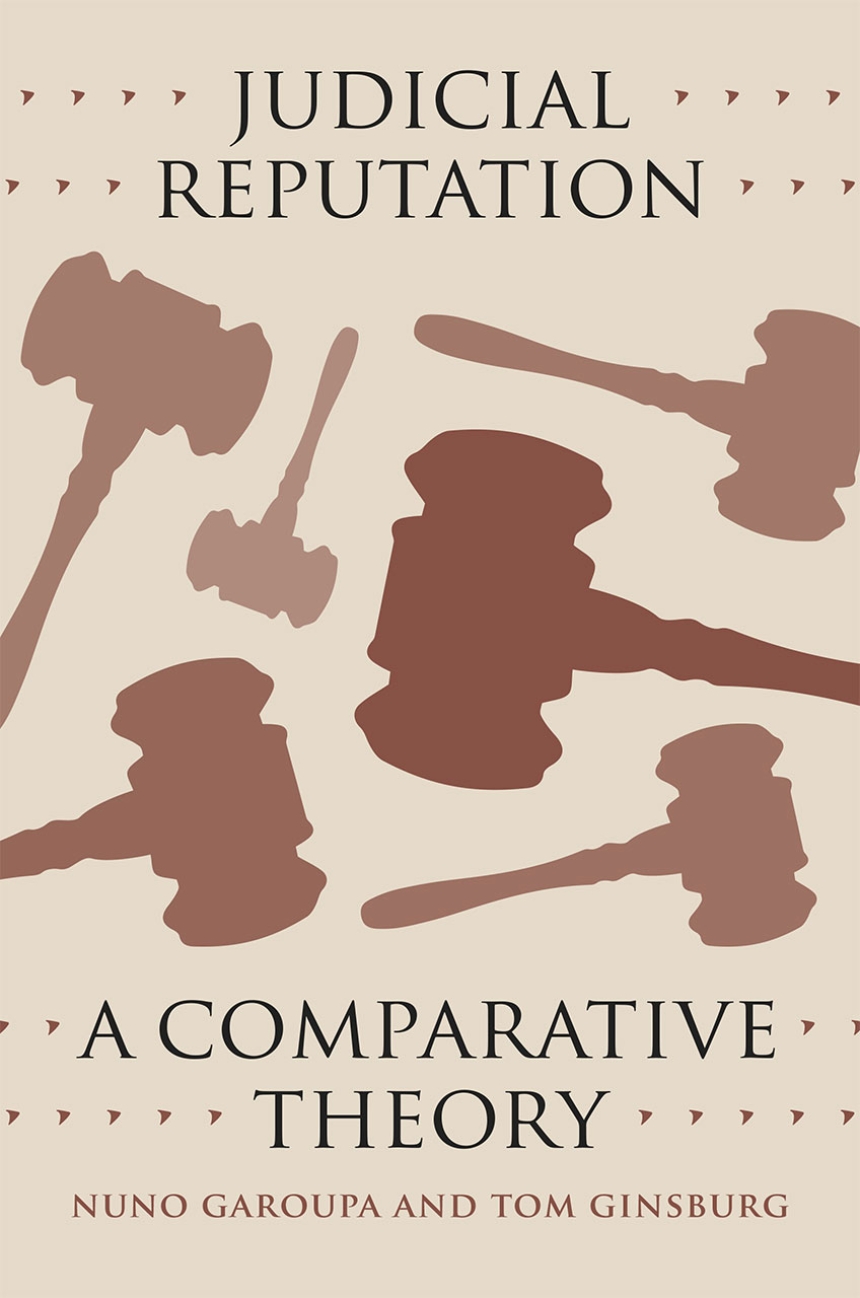Judicial Reputation
A Comparative Theory
Judges are society’s elders and experts, our masters and mediators. We depend on them to dispense justice with integrity, deliberation, and efficiency. Yet judges, as Alexander Hamilton famously noted, lack the power of the purse or the sword. They must rely almost entirely on their reputations to secure compliance with their decisions, obtain resources, and maintain their political influence.
In Judicial Reputation, Nuno Garoupa and Tom Ginsburg explain how reputation is not only an essential quality of the judiciary as a whole, but also of individual judges. Perceptions of judicial systems around the world range from widespread admiration to utter contempt, and as judges participate within these institutions some earn respect, while others are scorned. Judicial Reputation explores how judges respond to the reputational incentives provided by the different audiences they interact with—lawyers, politicians, the media, and the public itself—and how institutional structures mediate these interactions. The judicial structure is best understood not through the lens of legal culture or tradition, but through the economics of information and reputation. Transcending those conventional lenses, Garoupa and Ginsburg employ their long-standing research on the latter to examine the fascinating effects that governmental interactions, multicourt systems, extrajudicial work, and the international rule-of-law movement have had on the reputations of judges in this era.
In Judicial Reputation, Nuno Garoupa and Tom Ginsburg explain how reputation is not only an essential quality of the judiciary as a whole, but also of individual judges. Perceptions of judicial systems around the world range from widespread admiration to utter contempt, and as judges participate within these institutions some earn respect, while others are scorned. Judicial Reputation explores how judges respond to the reputational incentives provided by the different audiences they interact with—lawyers, politicians, the media, and the public itself—and how institutional structures mediate these interactions. The judicial structure is best understood not through the lens of legal culture or tradition, but through the economics of information and reputation. Transcending those conventional lenses, Garoupa and Ginsburg employ their long-standing research on the latter to examine the fascinating effects that governmental interactions, multicourt systems, extrajudicial work, and the international rule-of-law movement have had on the reputations of judges in this era.
272 pages | 3 halftones, 3 line drawings, 14 tables | 6 x 9 | © 2015
Law and Legal Studies: International Law, Law and Economics, The Constitution and the Courts
Reviews
Table of Contents
Preface
Introduction
1 A Theory of Judicial Reputation and Audiences
2 Pockets of Exception
3 Wearing Two Hats: Judges and Nonjudicial Functions
4 The Selection and Monitoring of Judges: The Spread of Judicial Councils
5 When Courts Collide: Intracourt Relations and the Problem of Audiences
6 The Rule of Lawyers: Globalization, International Law, and Judicial Reputation
7 Conclusion: The Shift toward the External Audience and Lessons for Reform
Appendix A: List of Courts Included in the Dataset
Appendix B: Data on Judicial Councils
Notes
Index
Introduction
1 A Theory of Judicial Reputation and Audiences
2 Pockets of Exception
3 Wearing Two Hats: Judges and Nonjudicial Functions
4 The Selection and Monitoring of Judges: The Spread of Judicial Councils
5 When Courts Collide: Intracourt Relations and the Problem of Audiences
6 The Rule of Lawyers: Globalization, International Law, and Judicial Reputation
7 Conclusion: The Shift toward the External Audience and Lessons for Reform
Appendix A: List of Courts Included in the Dataset
Appendix B: Data on Judicial Councils
Notes
Index
